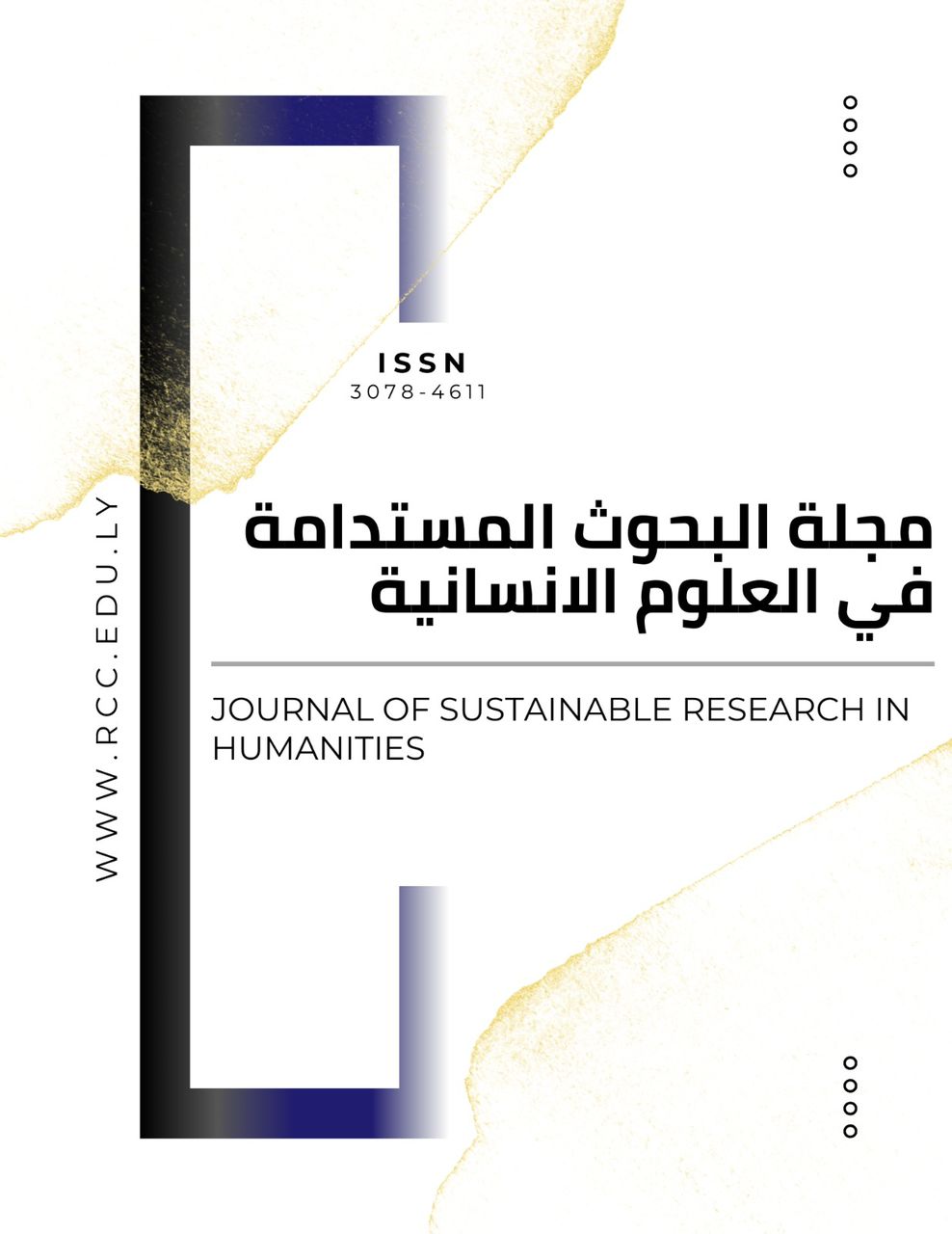"The Importance of Implementing Digital Accounting Transformation in Entrepreneurial Projects: A Field Study on Accounting Practitioners and Researchers at the Libyan Academy in the Municipality of Misurata"
DOI:
https://doi.org/10.36602/jsrhs.2024.1.2.2Keywords:
التحول الرقمي, المحاسبي, المشروعات الريادية, Digital transformation, Accountant, Pioneering projectsAbstract
الملخـــــص
تهدف هذه الدراسة إلى التعرف على أهمية تطبيق التحول الرقمي المحاسبي في المشروعات الريادية في البيئة الليبية. إذا تنبع أهمية الدراسة من أن عالم الأمس ليس هو عالم اليوم، فكل الوقائع التي بنيت عليها الخطط في السابق تتغير بشكل يومي، وهذا ما دفع رواد الأعمال إلى تحويل مسار مشروعاتهم والعمل على تغيير طرق أداء عملهم. فالتحول يجب أن يأخذ في الاعتبار الأدوات والعمليات الرقمية المحاسبية التي تؤدي إلى إعداد المعلومات المالية بكل سهولة ودقة ومصداقية، كما تؤدي إلى حدوث التغيير الضروري لتحسين الإنتاجية وتقليل نفقات الموارد وتحقيق الميزة التنافسية بين هذه المشروعات, ولتحقيق أهداف الدراسة تم إتباع المنهج الوصفي التحليلي الذي يقوم على دراسة الواقع ووصفه من خلال تحليل الواقع المحاسبي، كما تم الاعتماد على الاستبانة في جمع البيانات حيث تم جمع (40) استبانة من أصل (50) تم توزيعها على عينة الدراسة الممثلة في مزاولي المهنة والأكاديميين، حيث بلغت نسبة الاستجابة (80%).
وقد تم استخدام البرنامج الإحصائي spss)) لمعالجة البيانات باستخدام التكرارات والنسب المئوية والمتوسطات الحسابية واختبار T, حيث تشير نتائج الدراسة إلى أهمية تطبيق التحول الرقمي في المشروعات الريادية من خلال قيامه بتوفير عناصر الجودة وتقليل التكاليف، وتوفير الجهد البشري، والوقتية عند الحصول على المعلومات المحاسبية في المشروعات الريادية. وقد اقترحت الدراسة عدد من التوصيات سعيا منها إلى تأكيد أهمية تطبيق التحول الرقمي في المشروعات الريادية متمثلة في تفعيل دور الهيئات المهنية للمحاسبين والمراجعين الليبيين بعقد الندوات والدورات لمكاتب المحاسبة والمراجعة للتوعية بالوضع المستقبلي للمهنة في ظل التحول الرقمي وتشجيع المشروعات الريادية على تبني تطبيقه، كما اوصت بأهمية قيام شركات المحاسبة والمراجعة بخطوات استباقيه بتدريب العاملين لديها على التعامل مع تقنيات التحول الرقمي.
Abstract
The purpose of this study is to identify the importance of applying digital accounting transformation in entrepreneurial projects in the Libyan environment.
The importance of the study stems from the fact that yesterday's world is not today's world, as all the facts on which plans were built in the past change on a daily basis, and this is what urges entrepreneurs to change the course of their projects and work to change the methods of performing their work. The transformation must take into account digital accounting tools and processes that lead to the preparation of financial information with ease, accuracy, and credibility, and also lead to the necessary change to improve productivity, reduce resource expenditures, and achieve competitive advantage among these projects. To achieve the objectives of the study, the descriptive analytical approach was followed, which is based on Study and describe reality through analysis of accounting reality, The questionnaire was also relied upon to collect data, as (40) questionnaires were collected out of (50) and distributed to the study sample represented by professionals and academics, where the response rate reached. (80%)
The statistical program (SPSS) was used to process the data using frequencies, percentages, arithmetic averages, and the T-test. The results of the study indicate the importance of applying digital transformation in entrepreneurial projects by providing quality elements, reducing costs, and saving human effort and time when obtaining accounting information. In pioneering projects. The study proposed a number of recommendations in an effort to emphasize the importance of implementing digital transformation in pioneering projects, represented by activating the role of professional bodies for Libyan accountants and auditors by holding seminars and courses for accounting and auditing offices to raise awareness of the future status of the profession in light of digital transformation and encouraging pioneering projects to adopt its application. It also recommended the importance of accounting and auditing companies taking proactive steps to train their employees on dealing with digital transformation technologies.
Downloads
Downloads
Published
Issue
Section
License

This work is licensed under a Creative Commons Attribution-NonCommercial 4.0 International License.








